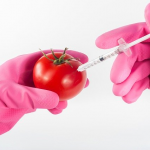A European study found that 44% of "antibiotic-free" animal feed samples tested contained antibiotics.
Food & Nutrition
Hating on “seed oils” is the latest dietary fad. Here’s why it’s misguided.
The pandemic has accelerated on-line grocery sales as the fear of shortages has given way to the fear of being out and about.
How did drinking a large glass of expensive celery juice every morning become the latest health fad? It beats us.
In the world of nutrition, potatoes seem to have fallen from grace. Meanwhile, sweet potatoes still -- largely -- get away scot-free. What is this travesty? We examine the evidence.
"Recency bias" states that more recent memories come to mind more quickly. But specific ideas and objects that have “stood the test of time” can overcome recency bias. How do we take longevity into account when making judgments? Are old conserved ideas better than the novel? In the attention economy novel wins, but what about in our day-to-day lives?
The singer Adele, and her significant slim down, has been credited to a combination of exercise and eating so-called “sirtfoods.” So what is the sirt diet -- and could it work for you? Let's take a look.
Given that PBS, in its recent documentary, “The Man Who Tried to Feed the World,” found it necessary to disparage Nobel Laureate Dr. Norman Borlaug, we believe it is important for our readers, and the world, to know what a thoughtful and truly benevolent man he actually was. Here is an article about Dr. Borlaug, a co-founder of the American Council on Science and Health, shortly after his passing. It was published on our site on September 13, 2009.
Given that PBS, in its recent documentary, “The Man Who Tried to Feed the World,” found it necessary to disparage Nobel Laureate Dr. Norman Borlaug, we believe it is important for our readers, and the world, to know what a thoughtful and truly benevolent man he actually was. Here is an article about Dr. Borlaug, a co-founder of the American Council on Science and Health, that we published on July 18, 2007 after first appearing in the Washington Times earlier that day.
Given that PBS, in its recent documentary, “The Man Who Tried to Feed the World,” found it necessary to disparage Nobel Laureate Dr. Norman Borlaug, we believe it is important for our readers, and the world, to know what a thoughtful and truly benevolent man he actually was. Here is an article about Dr. Borlaug, a co-founder of the American Council on Science and Health, that we published on March 22, 2004.
For the most part, supplements are a waste of money at best and harmful at worst. But could vitamin D be a notable exception – now more than ever? Let's take a look.
Since Covid-19 infection carries with it a crushing immunocompromise, it is important to recognize that the most common global reason of immunodeficiency is malnutrition and that the leading causation of world morbidity/mortality is chronic malnutrition.










